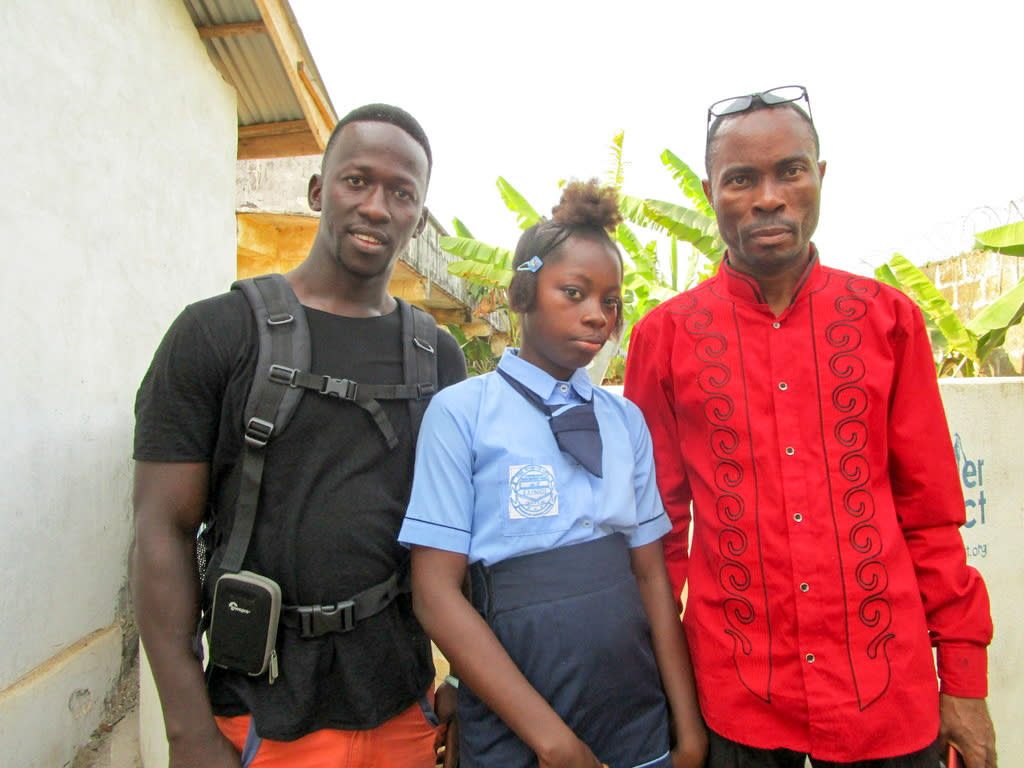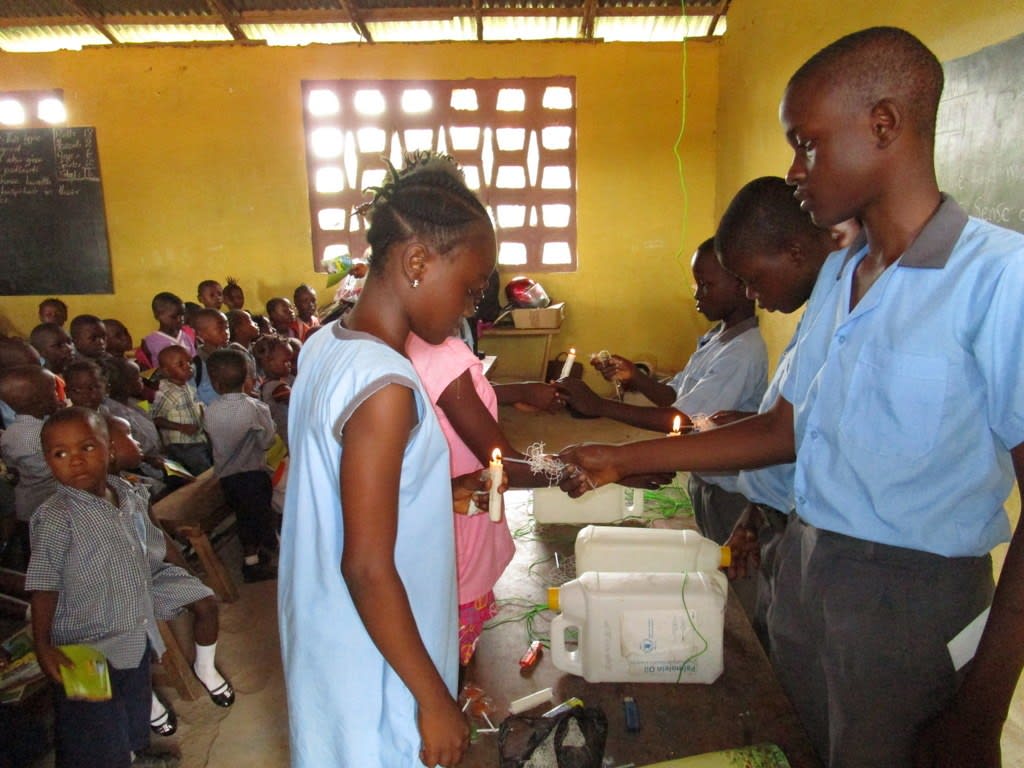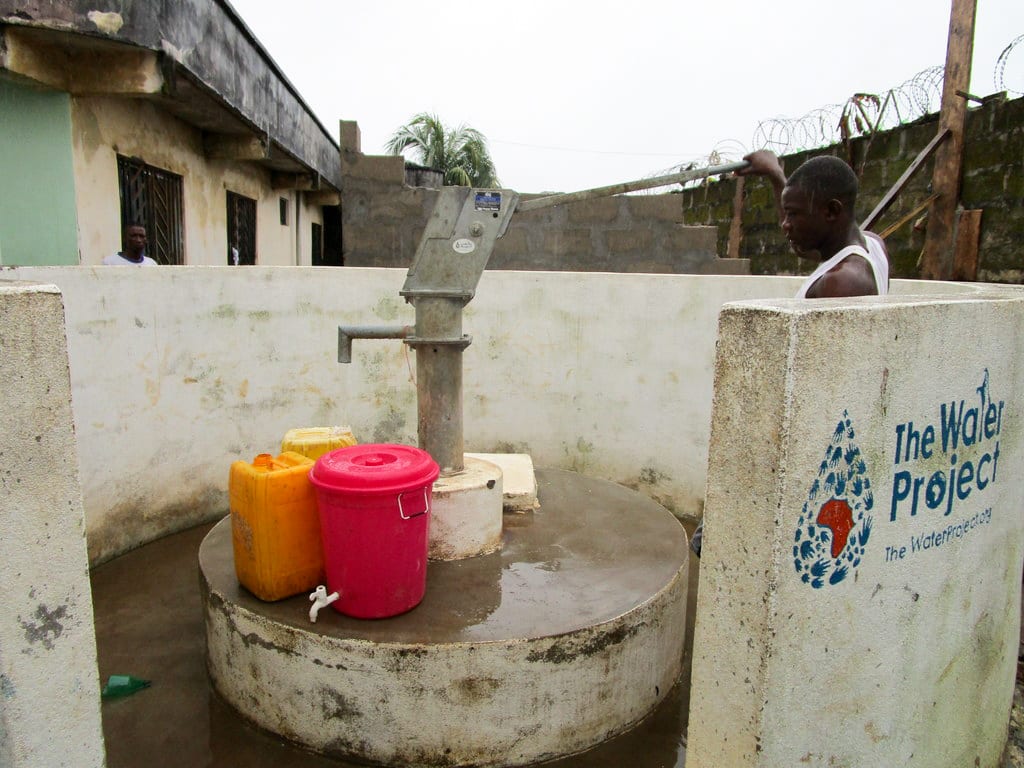Welcome to the School
The school originally started as Naomi Memorial Pre-Primary School, named after the mother of the founder. It was later changed to The Word of Life Bilingual Pre-Primary & Secondary School in 2013. The school was built in 2009 by a Nigerian pastor and his Sierra Leonean wife, and is still funded by their private resources today. It is one of a handful of schools that is within a gated compound, an added quality that attracts both parents and students. The children are shielded from the distractions and dangers they would otherwise encounter on a daily basis. The children in other schools skip school or would arrive late and slip out early. At this school, once all the students are accounted for, the gate is closed until school is out for the day.
The children get up very early in the morning anticipating the teachings of the day. Children rarely miss school because of the encouragement and counseling they receive from the teachers and pastor.
Water Situation
During certain months of the year, we get constant phone calls from this school! That's because the well there stops functioning every dry season. Over the course of the dry season, class is interrupted and students are sent out in search of water. Sometimes, they're allowed to fetch water from a Muslim school a few blocks down the busy road. The other times, students must search for any other source to fill their plastic containers.
Our visits to the school confirmed the seasonality of the well; as long as there was rain recently, the water levels were good. Unfortunately, the rain can stop for months at a time! The couple hundred students here become burdened from March to June.
Sanitation Situation
The school is spotless, and the children are presentable. The classrooms are swept on a daily basis, and the latrines don't smell.
Teacher John Conteh told us that's because of the school leadership. "The current health condition in the school is exceptional. The wife of the pastor was a nurse in the United States, so their keen eye is kept on the students to see who might have an infection of any kind. Since this is a privately funded school, the requirements on appearance and hygiene is very strict," Teacher Conteh said.
Plans: Sanitation and Hygiene Training
Training will last for three hours a day for three days. The facilitators have already assessed sanitation here and decided that hand-washing will be strongly emphasized. Though there were hand-washing stations with water, there wasn't a cleaning agent like soap or ash.
After reviewing hygiene and sanitation with teachers and students, teachers will invite parents to hear about what they learned.
Training will also result in the formation of a water user committee that will take responsibility for their new well. The members will manage and maintain the pump to the best of their ability, and will call our office if they need a mechanic to make a repair.
Plans: Well Rehabilitation
The well marked for this overhaul needs major work to supply adequate, clean water to the school once again. The pump will be removed, and a man will be lowered inside with a hand auger. This hand auger will allow the team to drill several meters deeper to hit a new water table, which will ensure the well supplies water throughout the drier seasons. As the team drills, casing will be installed, transforming this hand-dug well into a pseudo-borehole. Pipes will connect this lower system directly to the pump, a construction that we know will also improve the quality of water.
Once this plan is implemented, the school will have access to safe drinking water in both quality and quantity. Students will no longer be sent out in search of water during the dry months!

 Protected Dug Well
Protected Dug Well






























